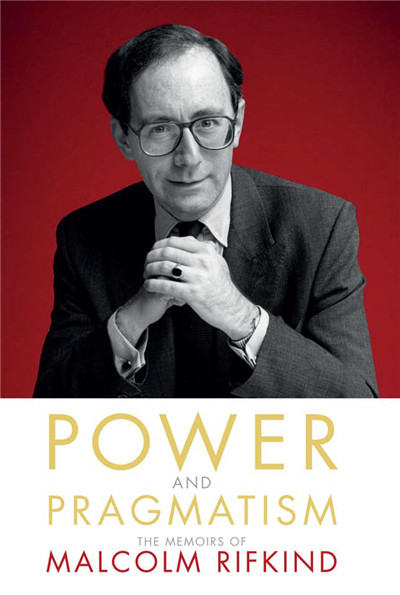 |
|
Power and Pragmatism, by Malcolm Rifkind. [Photo provided to China Daily] |
In the book-full of dry observations and witty anecdotes-he recounts the negotiations up to the handover of Hong Kong back to China on June 30, 1997.
He was foreign secretary up until a month before when the Conservatives suffered a landslide defeat at the hand of incoming Labour prime minister Tony Blair and he himself lost his Edinburgh Pentlands seat in parliament, which he had held for 23 years.
He held his first meeting with Chinese foreign minister Qian Qichen in London in 1995 and when he visited Hong Kong and the Chinese mainland the following January he was given the nickname in the local press of Li Wenjun, which in Chinese means a cultured gentleman.
"Much of the hard work had already been done by Margaret Thatcher and Sir Geoffrey Howe (the former foreign secretary who had negotiated the 1984 Joint Declaration that paved the way for the handover). So I was just dealing with a number of unresolved issues, or new issues that had arisen. It was not too difficult," he says.
"Because we were approaching the moment of truth, obviously within Hong Kong itself there was increased nervousness about what the changeover would mean."
Rifkind makes the point that Beijing resuming control of Hong Kong was an unprecedented event with nothing similar ever happening before.
"It was a unique problem which required unique solutions so it is fair to say that Hong Kong remains governed by a different system to the rest of China," he says.
"The fundamental commitment to two systems in one country has been honored, in the sense you know."
The book charts his career from an up-and-coming Scottish advocate to being elected as a member of parliament in just his late 20s.
Although gifted with an uncanny ability to speak without notes, honed in debates at Edinburgh university, he is slightly bemused by his reputation as an intellectual which he modestly says belied his actual academic achievements at school.